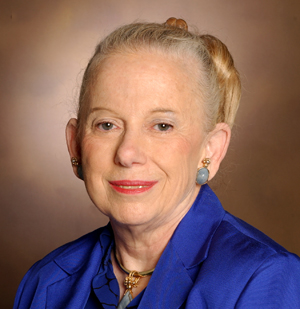
From the minute students accept entrance into Vanderbilt University School of Medicine (VUSM) they have made many life-changing choices. As they navigate medical school and make decisions about the kind of doctors they want to be, the choices continue to mount.

In his message to the class of 2016 at Commencement last Friday, Jeffrey Balser, M.D., Ph.D., president and CEO of Vanderbilt University Medical Center and dean of VUSM, encouraged the group to reflect on past choices, but also to consider the ones ahead of them.
“You will be forced to make tough choices. Unpopular choices. Agonizing choices. Choices that may put you at personal risk,” Balser said. “We need you to make courageous choices.
“Here’s why. Health outcomes in the United States are among the worst in the developed world. We are 37th in health outcomes. In a country that has more resources and more social, political and economic influence than any other in the history of the planet, we have abysmal health.”

For years Balser has relayed a simple message to the student body: step up as leaders while making a positive impact in health care.
“Leaders make tough choices, and through making those choices, we drive change,” he told the 188 graduates whose families and friends filled Langford Auditorium on May 13 for commencement ceremonies.
Kelly Diaz, M.D., is what is affectionately known as a ‘double dore’ — a graduate of both Vanderbilt University in 2011 and VUSM in 2016.

She will complete her residency in family medicine at the University of Alabama Birmingham in Huntsville, where she and her 2–year-old daughter will finally join her husband.
Diaz had her daughter between her second and third year of medical school and was able to take 8 months off before gearing back up for classes.
“As a female, I really worried about balancing career and family before I came to medical school,” she said. “But I found, and I hope I am an example, that if you have your priorities straight and you are fully present wherever you are, you can find the balance that works for you.
“It’s rare for women to have children during medical school and it takes a lot of support, but it’s doable. I hope I can be an encouragement to others.”
Diaz was fortunate that her mother, who had recently retired, was able to move to Nashville for one year as a full-time grandparent to Diaz’s daughter, Emmaline.
Medical Scientist Training Program (MSTP) graduate Benjamin Dean, M.D., Ph.D., spent eight years at Vanderbilt and is excited to be pairing science and medicine.

“At Vanderbilt, you look to one side of the plaza and see all the research buildings, where scientists are asking questions and discovering new things about how humans work,” said Dean, who is heading to Seattle Children’s Hospital for his residency in pediatric neurology. “Then you look in the other direction and you have a hospital full of people who need those discoveries.
“I have imagined how wonderful it would be to take my intellectual curiosity and desire to discover new things about humans on a biological level and not just give it over to clinical researchers and physicians, but to actually be the person applying the innovations in clinic.”
Balser told the room of future health care professionals that the choices they make while practicing can leave an impact.

“Your didactic training and degrees have given you the authority to make decisions that deeply affect people,” said Balser. “We are trusting you will not shrink from the responsibility, because what sometimes carries stress and pain can also be a source of great satisfaction and tremendous joy.”
The breakdown of the 2016 class: 104 Doctor of Medicine (18 also Doctor of Philosophy); five Doctor of Medical Physics; 12 Doctor of Audiology; five Master of Education of the Deaf; 24 Master of Science Speech Language Pathology; one Master of Health Professions Education; three Master of Laboratory Investigation; 11 Master of Science in Clinical Investigation; and 23 Master of Public Health.












